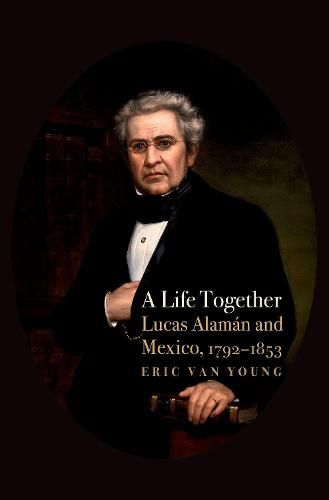Readings Newsletter
Become a Readings Member to make your shopping experience even easier.
Sign in or sign up for free!
You’re not far away from qualifying for FREE standard shipping within Australia
You’ve qualified for FREE standard shipping within Australia
The cart is loading…






Lucas Alaman (1792-1853) was the most prominent statesman, political economist, and historian in nineteenth-century Mexico. Alaman served as the central ministerial figure in the national government on three occasions, founded the Conservative Party in the wake of the Mexican-American War, and authored the greatest historical work on Mexico’s struggle for independence. Though Mexican historiography has painted Alaman as a reactionary, Van Young’s balanced portrait draws upon fifteen years of research to argue that Alaman was a conservative modernizer, whose north star was always economic development and political stability as the means of drawing Mexico into the North Atlantic world of advanced nation-states. Van Young illuminates Alaman’s contribution to the course of industrialization, advocacy for scientific development, and unerring faith in private property and institutions such as church and army as anchors for social stability, as well as his less commendable views, such as his disdain for popular democracy.
$9.00 standard shipping within Australia
FREE standard shipping within Australia for orders over $100.00
Express & International shipping calculated at checkout
Lucas Alaman (1792-1853) was the most prominent statesman, political economist, and historian in nineteenth-century Mexico. Alaman served as the central ministerial figure in the national government on three occasions, founded the Conservative Party in the wake of the Mexican-American War, and authored the greatest historical work on Mexico’s struggle for independence. Though Mexican historiography has painted Alaman as a reactionary, Van Young’s balanced portrait draws upon fifteen years of research to argue that Alaman was a conservative modernizer, whose north star was always economic development and political stability as the means of drawing Mexico into the North Atlantic world of advanced nation-states. Van Young illuminates Alaman’s contribution to the course of industrialization, advocacy for scientific development, and unerring faith in private property and institutions such as church and army as anchors for social stability, as well as his less commendable views, such as his disdain for popular democracy.